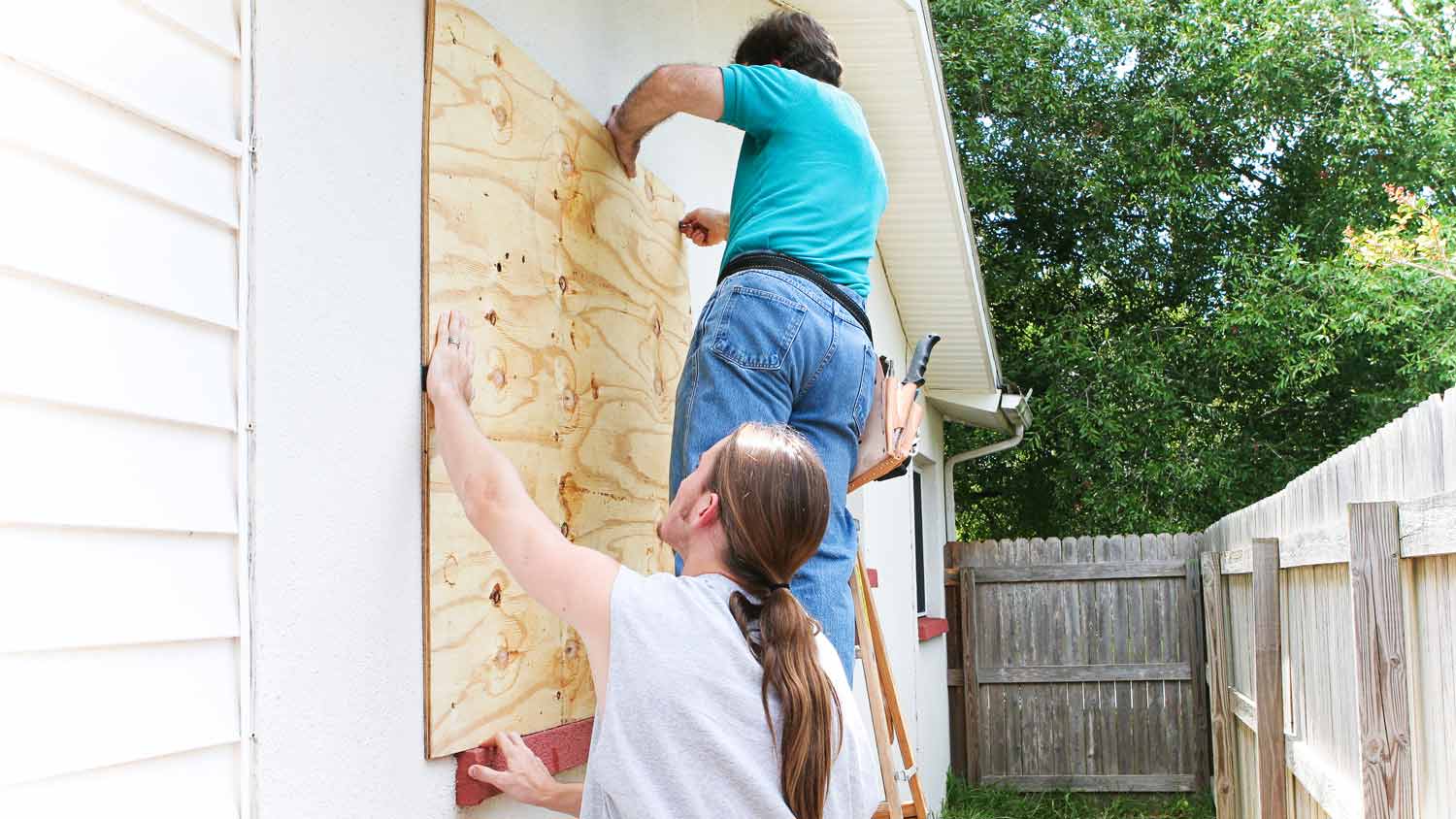
Home elevator costs depend on the size and type of lift, if it needs retrofitting, and the number of floors. Our guide outlines all residential elevator costs.
Tip your contractors to show appreciation and gratitude


You’ve hired a professional to tackle a home project for you—moving, painting, or even building a new addition to your home. The job is done, they are packing up, and the thought comes across your mind: Are they expecting a tip?
Most individuals know tipping is expected in service industries, like restaurants, coffee shops, and salons. But are you expected to tip a home improvement professional? And maybe even more importantly, how much tip should you provide? We’ve got you covered with a guide on who and how much to tip to show your home improvement professional appreciation and gratitude.
When taking on this project, expect questions only a pro can answer. With our network of local pros, you'll get the job done and your questions answered—without the hassle and stress of doing it yourself.
While these are general guidelines, it’s not mandatory to tip for services, and your professional should never pressure you into tipping for services rendered. However, tipping for home improvement services serves as a nice “thank you” for a job well done. Below is a guide to how much to tip if you choose to do so, and of course, remember that if you cannot afford to tip at the suggested amount, do not feel obligated to.
Tip your carpet cleaner $10 to $20 per person each time they visit.
Tip your carpet installer $10 to $20 per crew member.
Tip your house cleaner 15% to 20% of the cleaning cost. For one-off jobs, tip as soon as the job is complete. For recurrent jobs, you can tip each time or leave a larger tip monthly.
Tip house painters 10% to 15% of the total project cost.
Tip your roofing contractor $10 to $20 per person or up to $100 per person for a particularly difficult job.
Tip your movers 10% to 20% of the total cost.
Tip your gutter cleaners $10 to $20 for each person.
Tip your handyperson $10 to $20 per hour if you have received exceptional service.
Tip your landscaper $10 to $20 per crew member for a one-off job or 10% to 20% as an annual bonus for ongoing work.
Besides knowing who and how much to tip, it’s equally important to know in what situations you’re not expected to tip. These situations can vary but, for the most part, hold across circumstances.
Large dollar items, like a remodel, do not require you to tip a contractor.
Some large commercial companies (think nationwide) do not allow their employees to accept tips.
Specific trades, like plumbing and electrical work, do not require nor expect a tip.
Any contractor who has performed a sub-par job or showed poor customer service.
To help avoid a situation where someone might not be able to accept a well-meaning tip, you can ask your worker if their company allows tips before offering one. That way, you can ensure that tipping the pro won’t cause them any unnecessary stress or issues with their employer.

While tipping your contractor may seem like an easy decision, there is a large grey area. This occurs when it’s not customary to tip a particular professional, but circumstances have arisen that may make it more acceptable. Or, you might be compelled to tip at a higher rate than is suggested. These grey areas might include:
Your professional working through extreme weather conditions
An unusually difficult project
Multi-month jobs
Completing the job ahead of schedule
A same-day, weekend, or rush job
Having exceptional work done, especially under unusual circumstances like project delays or weather issues
If your circumstance falls into a grey area, you might feel compelled to tip, and that’s okay. Generally speaking, a strong tipping strategy is a 10% to 20% tip of the project cost. This can be increased up to 25% of the project cost if you feel that you had exceptional work done.
Knowing who to tip and how much is only part of the puzzle. Other factors, like when to tip and how to support your professionals without tipping, are also essential things to consider.
If you’re tipping your professional, you can hand it to them directly or leave it in an envelope for them. For example, you might want to give your tip directly to the moving crew you hired, but you can leave the tip for your house cleaner in an envelope on the table if you are not home.
If you are not tipping your professional or they do not accept tips, inquire about how else you can support them. This could be a positive review, a survey, or even a post on social media.
If you cannot tip or if your professional cannot accept them, you can offer a small gift, like lunch, bottled water, a thank you card, or a box of cookies as an alternative.
Whether you’re tipping or not, you can offer to be a reference for future jobs to help your professional.
From average costs to expert advice, get all the answers you need to get your job done.

Home elevator costs depend on the size and type of lift, if it needs retrofitting, and the number of floors. Our guide outlines all residential elevator costs.

Use our guide to calculate the cost to install a stair lift in your home. Prices depend on the type of stair lift, including the seat style and other advanced features.

Discover storm damage repair costs, key price factors, and ways to save. Get transparent estimates to plan your home repairs with confidence.

Medium-density fiberboard is a commonly used material for various carpentry projects. Learn more about medium-density fiberboard costs for projects and more.

Here's how much households are paying for utilities around the country. While location determines provider rates, your home's size and efficiency level can dramatically impact utility usage.

What is dry rot and how do you manage it? Dry rot is a fungus that attacks wood. Learn how to get rid of it before it causes structural damage.